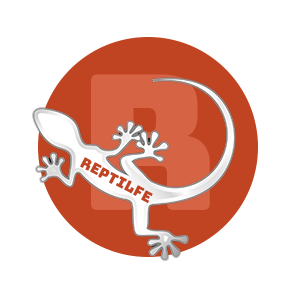Delve into the captivating world of home reptiles as we uncover the lesser-known health issues and diseases that plague these fascinating creatures.
From secretive ailments to subtle symptoms, join us on a journey to understand the challenges that reptile owners face when it comes to the well-being of their scaly companions.
What health risks lurk beneath the scales of reptiles?
Reptiles, despite their seemingly resilient nature, are not immune to a variety of health risks that can lurk beneath their scales. These risks can range from infectious diseases and parasites to metabolic disorders and organ failure.
It is essential for reptile owners to be aware of these potential threats and take proactive measures to protect the health of their scaly companions. Regular veterinary check-ups, proper hygiene, and a suitable diet can help mitigate these risks and ensure the longevity and well-being of reptiles in our care.
Are respiratory problems common among reptiles?
Respiratory problems are indeed common among reptiles and should not be taken lightly. Reptiles can suffer from respiratory infections, pneumonia, and other respiratory disorders that can affect their breathing and overall health.
The causes of these problems can vary, including improper temperature gradients, inadequate humidity levels, or exposure to irritants. Vigilance in monitoring their respiratory function, maintaining optimal environmental conditions, and seeking veterinary attention at the first sign of respiratory distress are vital to preserving the respiratory health of our reptilian companions.
How can you spot signs of metabolic bone disease in your reptile?

Metabolic bone disease is a condition that commonly affects reptiles, particularly those with improper nutrition or inadequate exposure to UVB light. The signs of metabolic bone disease can include weakened limbs, soft or deformed bones, difficulty in movement, and fractures.
Regular physical examinations, a balanced diet rich in calcium and vitamin D3, and providing appropriate UVB lighting are crucial in preventing and detecting this debilitating disease. Early intervention, including veterinary care and adjustments to the reptile’s environment, can help manage metabolic bone disease and improve the reptile’s quality of life.
What should reptile owners know about gastrointestinal issues?
Gastrointestinal issues can pose significant challenges for reptiles and require careful attention from their owners. Reptiles can experience digestive blockages, impaction, regurgitation, or infections that affect their gastrointestinal system.
Maintaining proper temperature gradients, offering a varied and species-specific diet, and providing adequate hydration are essential in promoting a healthy digestive system for reptiles.
Regular observation of their eating habits, monitoring of fecal output, and seeking veterinary assistance when gastrointestinal issues arise are key to ensuring the digestive well-being of our scaly friends.
Are parasites a prevalent concern for reptiles?
Parasites are a prevalent concern for reptiles and can affect their overall health and well-being. Internal parasites, such as worms, protozoa, or flukes, as well as external parasites like mites or ticks, can infest reptiles and cause various health problems.
Regular fecal examinations, implementing proper quarantine measures for new reptile additions, and practicing good hygiene are important in preventing and managing parasite infestations.
Veterinary intervention, including appropriate deworming or parasite treatments, should be sought if parasites are suspected. By staying vigilant and proactive in parasite prevention, reptile owners can help their scaly companions live a parasite-free life.
What role does proper humidity play in reptile health?

Proper humidity is crucial for maintaining optimal health in reptiles. Reptiles, being ectothermic creatures, rely on their environment to regulate their body temperature and hydration.
The right humidity levels are essential for promoting healthy shedding, proper respiratory function, and preventing dehydration in reptiles. It is important to research and understand the specific humidity requirements of different reptile species, provide appropriate substrates, and offer areas of varying humidity within their enclosure.
Regular monitoring and adjustment of humidity levels, along with providing access to water sources and humidity hides, contribute to the overall well-being and vitality of reptiles.
How does temperature affect the well-being of reptiles?
Temperature plays a vital role in the well-being of reptiles, as they are unable to internally regulate their body temperature like mammals. Reptiles require specific temperature gradients within their enclosures to thermoregulate effectively.
Inadequate temperatures can lead to stress, decreased appetite, compromised immune function, and even life-threatening conditions like hypothermia or heatstroke.
Providing a suitable temperature gradient with warm basking spots and cooler areas allows reptiles to regulate their body temperature as needed. Using thermometers, heat sources, and monitoring behavior are crucial in maintaining optimal temperatures for the health and happiness of our scaly companions.
Can reptiles suffer from skin infections and how to identify them?
Reptiles are susceptible to skin infections, which can cause discomfort and health issues if left untreated. Bacterial, fungal, or viral infections can manifest as changes in skin color, texture, or the presence of sores, blisters, or lesions.
Proper hygiene, such as regular cleaning of enclosures and substrates, along with ensuring appropriate humidity levels, can help prevent skin infections.
If signs of infection are observed, it is crucial to seek veterinary assistance for a proper diagnosis and treatment plan. Early intervention, along with maintaining optimal environmental conditions, can help reptiles combat skin infections and restore their skin’s health.
What should you know about shedding issues in reptiles?
Shedding is a natural and necessary process for reptiles to grow and renew their skin. However, shedding issues can occur and pose challenges for reptiles. Incomplete shedding, retained skin, or difficulties in shedding can lead to skin infections and other complications.
Providing appropriate humidity levels, offering moist hideouts, and ensuring proper hydration are crucial in facilitating successful shedding. Regular observation of shedding patterns, gentle assistance if needed, and seeking veterinary advice in cases of persistent shedding problems are important in helping reptiles go through this process smoothly.
Are there common eye problems that affect reptiles?
Just like humans, reptiles can also encounter a variety of eye problems that can impact their vision and overall well-being. Common eye issues in reptiles include infections, corneal ulcers, cataracts, and retained eye caps.
These conditions can lead to redness, swelling, discharge, or even loss of sight if left untreated. Regular observation of your reptile’s eyes, maintaining clean and suitable habitats, and seeking veterinary care at the first sign of eye problems are crucial in preserving their ocular health. By keeping a watchful eye on their peepers, we can ensure our reptile companions continue to enjoy the world around them with clarity.
Do reptiles experience neurological disorders?
While reptiles may seem poised and composed, they too can experience neurological disorders that affect their nervous system and behavior. These disorders can result from genetic factors, infections, trauma, or metabolic imbalances. Symptoms can vary from seizures and abnormal movements to altered coordination or disorientation.
It is essential to provide a stress-free environment, maintain proper nutrition, and seek veterinary advice if you notice any concerning neurological signs in your reptile. By addressing these disorders promptly, we can support the neurological health and vitality of our scaly friends.
What are the dangers of dehydration for reptiles?

Dehydration poses significant dangers to reptiles and can have detrimental effects on their overall health. Reptiles rely on external sources of water for hydration, and insufficient water intake can lead to numerous issues, including organ failure, impaired digestion, and compromised immune function.
Providing clean water sources, regular misting or bathing, and ensuring proper humidity levels are crucial in preventing dehydration. Additionally, monitoring your reptile’s hydration status, recognizing signs of dehydration (such as sunken eyes or wrinkled skin), and seeking veterinary attention if needed, can help keep your scaly companion adequately hydrated and thriving.
How can you prevent and treat dental problems in reptiles?
Dental problems in reptiles can cause pain, difficulty eating, and even systemic infections. Prevention is key to maintaining good oral health for your reptile. Providing appropriate substrates for natural tooth wear, offering a balanced diet that promotes chewing, and regular oral hygiene can aid in preventing dental issues.
If dental problems arise, such as overgrown or broken teeth, seeking professional veterinary care is crucial. Veterinary professionals can perform dental procedures, such as tooth trimming or extractions, to alleviate discomfort and prevent further complications. By adopting preventive measures and addressing dental problems proactively, we can ensure the dental well-being of our reptilian companions.
Are there specific reproductive issues that affect reptiles?
Reproductive issues can affect reptiles, and understanding these matters is crucial for their well-being. Female reptiles may experience complications during egg-laying, such as egg binding or dystocia, which can be life-threatening if not addressed promptly.
Males may encounter reproductive organ disorders or infertility. Providing appropriate nesting areas, suitable temperatures for egg incubation, and maintaining optimal reproductive health through proper nutrition are vital in preventing these issues.
Regular observation, seeking veterinary care for any reproductive abnormalities, and considering the guidance of experienced reptile breeders can help ensure successful reproduction and reproductive health for your scaly companions.
What steps can you take to create a healthy environment for your reptile?
| Health Issue/Disease | Signs and Symptoms | Prevention and Treatment |
|---|---|---|
| Respiratory Problems | Coughing, wheezing, open-mouth breathing | Maintain proper temperature and humidity, seek veterinary care |
| Metabolic Bone Disease | Weakened limbs, soft or deformed bones | Provide proper UVB lighting, balanced diet with calcium and vitamin D3 |
| Gastrointestinal Issues | Loss of appetite, regurgitation, abnormal fecal output | Ensure suitable temperature gradients, offer a varied and species-specific diet |
| Parasites | Weight loss, lethargy, presence of external parasites | Regular fecal examinations, proper quarantine measures, veterinary deworming |
| Skin Infections | Changes in skin color or texture, presence of sores or lesions | Maintain proper hygiene, suitable humidity levels, seek veterinary assistance |
Creating a healthy environment for your reptile is essential for their overall well-being. Firstly, understanding the specific habitat requirements of your reptile species, including temperature, humidity, and lighting, is crucial.
Providing a suitable enclosure size, appropriate substrate, hiding spots, and proper ventilation contribute to their comfort. Offering a balanced diet that meets their nutritional needs, regular cleaning of their habitat, and maintaining good hygiene practices are also important.
Additionally, providing mental stimulation, regular exercise, and minimizing stressors help create a healthy and enriching environment for your reptile. By considering all these aspects, you can foster an environment where your scaly companion thrives and enjoys a fulfilling life.
Final thoughts
In conclusion, understanding the common health issues and diseases that affect reptiles is vital for ensuring the well-being of our scaly companions. By being knowledgeable about respiratory problems, metabolic bone disease, gastrointestinal issues, parasites, skin infections, shedding issues, eye problems, neurological disorders, dehydration dangers, dental problems, reproductive issues, and by creating a healthy environment, we can provide the best possible care for our reptiles.
Regular veterinary check-ups, appropriate environmental conditions, a balanced diet, and prompt intervention when necessary are essential in maintaining their health and happiness. With our dedication and proactive approach, we can help our reptilian friends live long, vibrant lives and enjoy their unique place in our homes and hearts.




